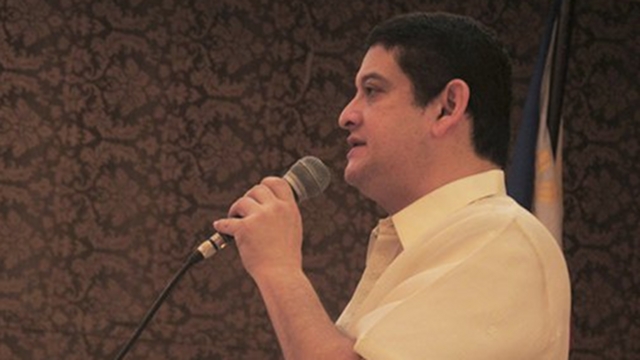SUMMARY
This is AI generated summarization, which may have errors. For context, always refer to the full article.

MANILA, Philippines – It’s not too late for critics of the Cybercrime Law.
The law may have already been passed but the lone senator who opposed it plans to repeal parts of the measure like online libel.
Senator Teofisto “TG” Guingona III is looking into several options to repeal parts of the Cybercrime Prevention Act, which President Benigno Aquino III signed into law last September 12.
Guingona said on Friday, September 21, that he plans to challenge some provisions of the law either by going to the Supreme Court or pushing for its amendment.
The senator believes some provisions are unconstitutional. Guingona said online libel, for example, is a prior restraint on freedom of expression and freedom of speech.
“Pinipigilan mo ang tao na makapagpahayag ng damdamin niya. Tingin ko hindi dapat iyan,” Guingona said. (You are preventing a person from expressing what’s on his or her mind. I don’t think that’s right.)
He added, “We can lead that effort [to challenge this]. We certainly will. We’re having meetings with some groups to see what we can do about it.”
‘Problematic provisions’
Media groups like the Center for Media Freedom and Responsibility, the National Union of Journalists of the Philippines, and the Philippine Daily Inquirer have criticized the law. University of the Philippines Law Professor Harry Roque also wrote in a Rappler Thought Leaders piece that the law is a draconian legislation, going against the United Nations’ push to decriminalize libel.
Guingona echoed the Inquirer editorial that the law is a “blow against free speech.”
“I think what will happen is people will now be afraid to express themselves on the Internet. This is a big blow to our democracy,” Guingona said in Filipino.
In a statement released on Thursday, September 20, Guingona also said it is problematic for the law to “transplant the Revised Penal Code definition of libel” to the Internet without specifying who is liable.
“With this law, editors and owners of these sites will be forced to lock down their websites and prevent people from commenting. I believe that editors can regulate the works of their writers but if you gag the general public, surely the Constitutional right of freedom of expression is threatened.”
How to legislate morality?
Guingona also disagreed with the provision penalizing obscenity online. He said legislators have no right to dictate what people should see or not see.
“That’s a matter of individual choice, individual values and individual religious beliefs,” the senator said.
“Unjustifiable prior restraint is an archaic policy that should not be in our statute books,” Guingona has said.
Some law experts shared Guingona’s stand. Pamantasan ng Lungsod ng Maynila College of Law Dean Ernest Maceda told Rappler the ambiguity in the law can be described as “50 shades of liability.”
Maceda and other lawyers said the law may extend liability for libel and allow the arbitrary closure of websites. – Rappler.com
Add a comment
How does this make you feel?
There are no comments yet. Add your comment to start the conversation.